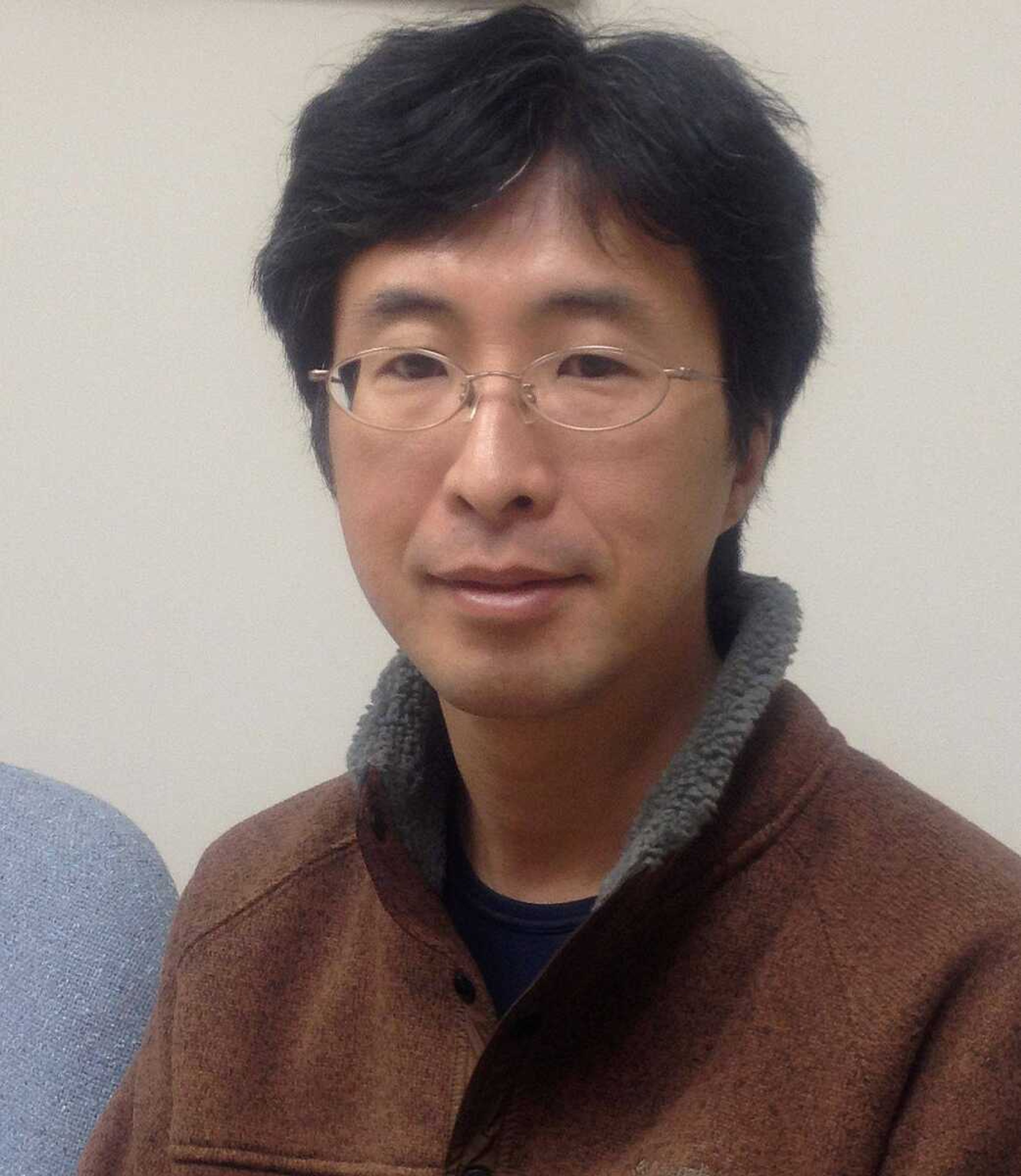During his weeklong visit to Southeast Missouri State University's Center for Faulkner Studies, associate English professor Koichi Suwabe of the University of Tokyo has immersed himself in the writings and papers of one of his favorite novelists and has been surprised by what he's found.
Suwabe is this year's BioKyowa Visiting Japanese Scholar, meaning the Faulkner Society of Japan helped select him, and biotech company BioKyowa is his sponsor, said Center for Faulkner Studies director Chris Rieger.
Along with making his way through the Louis Daniel Brodsky William Faulkner Collection this week, Suwabe is translating "Light in August" into Japanese and writing an introduction. "Light in August" is one of the his favorite Faulkner works.
In terms of language, it's difficult to translate Faulkner, but Suwabe said he's certain even native speakers find the Mississippian's writing difficult.
"Since I am a foreigner," he said, "I have to read it very slowly, but this is probably close to Faulkner's intention. Faulkner doesn't want us to read it so fast. ... It allows us to interpret it in a loose way. Faulkner's novels are rich enough to accept those kind of misunderstandings."
Having studied the author for more than 10 years, Suwabe has found his journey through the collection "fantastic."
"I thought I knew Faulkner pretty well, but there are some things I didn't know," Suwabe said. He found it surprising the "Light in August" manuscript had many crossed-out parts in the beginning, something that's rare.
Faulkner visited Japan after World War II.
"In an interview, [Faulkner] said that in a way [the] American South and Japan are kind of similar ... because we, of course, [got] beaten by Yankees, but we did something unforgettable or unpardonable. ... Our ancestors committed some kind of sin, and that kind of guilt feeling is probably in a way good for literature," Suwabe said.
rcampbell@semissourian.com
388-3639
Pertinent address: One University Plaza
---
Koichi Suwabe, associate professor of English in the Department of English Language and Literature at The University of Tokyo, said he finds most novels enjoyable.
*"But if you read Faulkner, everything is in it. That*'s what I feel. Any kind of pleasure is in Faulkner*'s novels. Of course, I enjoy Hemingway; I enjoy Fitzgerald; I enjoy Melville, Hawthorne and many [other] authors, but that kind of plesure is also in Faulkner, not vice-versa, I think,*" Suwabe said. *"He also has many major novels. Some authors have only one or two major works, but Faulkner has so many ...*"
Suwabe holds a bachelor*'s from Sophia University in Japan; a master*'s degree from The University of Tokyo; and a doctorate from the State University of New York at Buffalo *-- all in English.
BioKyowa Inc. sponsors the Visiting Japanese Scholar program ever year. A subsidiary of Kyowa Hakko Bio Co., LTD., opened its Cape Girardeau plant in 1984 as the first major investment by a Japanese manufacturing company in the state of Missouri. Since its beginning, BioKyowa has gone through several multimillion dollar expansions, evolving into a multiple-plant facility producing high quality, value-added amino acids for products such as nutritional food supplements and fine chemicals, Southeast Missouri State University*'s website said.
Connect with the Southeast Missourian Newsroom:
For corrections to this story or other insights for the editor, click here. To submit a letter to the editor, click here. To learn about the Southeast Missourian’s AI Policy, click here.







